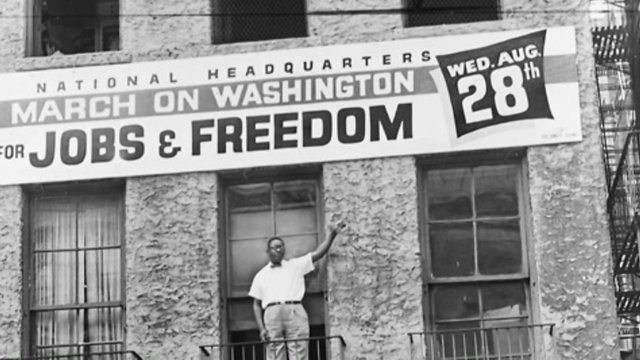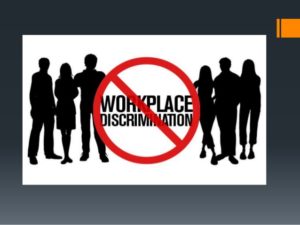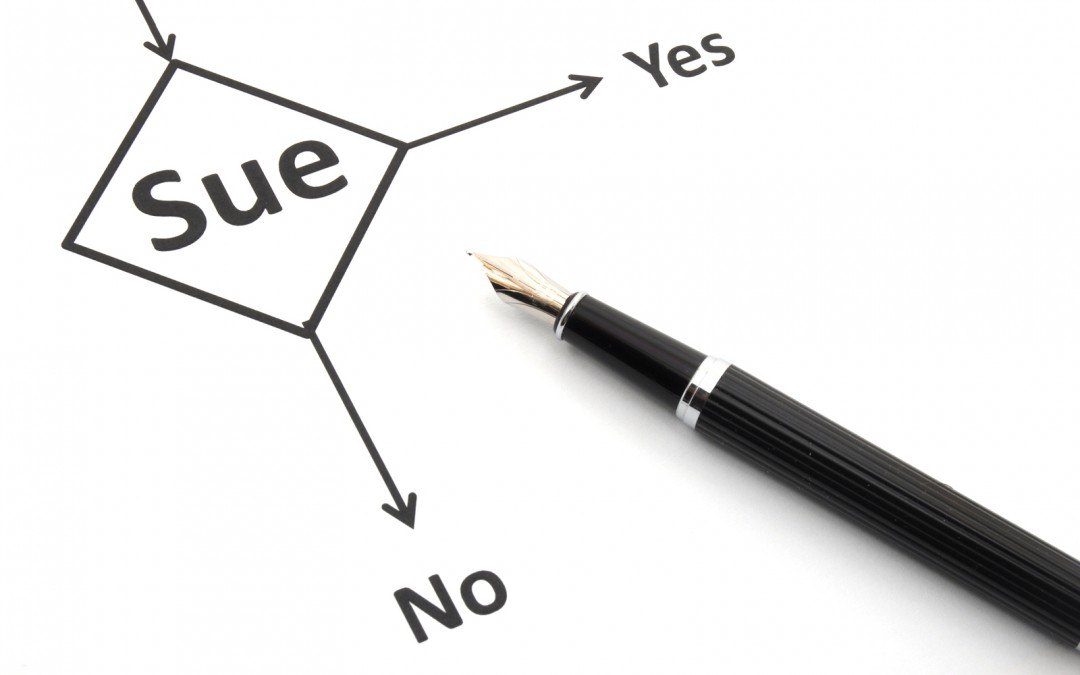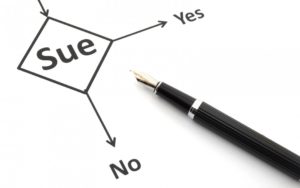by | | Workers' Compensation
Brian Elston Law is pleased to share a decision in favor of his client at the Full Commission.
In reversing the deputy commissioner, the Full Commission found the Employee credible and that he was in fact injured on the job. A snippet of the decision is below.

Full Commission Award
If the insurance carrier has denied your workers’ compensation claim, please feel free to contact my office to discuss your options.
by | | Workers' Compensation
You’ve been injured at work and you want to know: Is my injury covered under workers’ comp?

How the accident is described on the claim form may determine whether the claim is covered.
You were injured at work. Your Employer is responsible, right? Your injury should be covered under workers’ comp. Well, maybe. The answer depends on exactly how you were injured.
Injury by accident
North Carolina law defines what type of injuries are covered under the worker’s compensation act. “Injury shall mean only injury by accident arising out of and in the course of employment.” What does that mean? It means for an injury to be covered under workers’ comp, the injury must have happened by accident. So you not only have to have an injury, but you must have an “accident.”*
What’s an accident? Just what you may have thought: an event that was not planned, unexpected, and unusual. An accident can be a fall, motor vehicle accident, a sudden twist, or any deviation from the normal work routine.
It is absolutely critical that someone hurt at work understand the importance of describing an accident to their supervisor or director. When I was a claims adjuster, claims were denied if the individual just described an injury and not an accident. For example, I recall taking a recorded statement from an injury that had a pretty bad knee injury. They had already been to the Emergency Room and there was no question that their knee was hurt. In the recorded statement, they told me that they injured their knee when they were walking down the stairs. They didn’t describe turning, twisting, missing a step, or that their use of the stairs was any different that the other times that they used the stairs. The person was injured but that’s not an accident and the claim was not covered under workers’ comp.
As a workers’ comp attorney, I make sure my clients understand the difference between an injury, and an injury by accident.
If you’ve been injured at work, but not sure if it was an accident, or would like more information on whether your injury is covered by workers’ comp., please contact my office to discuss.
*For more information, see my practice area page on workers’ comp.

by | | Workers' Compensation
What are my work place rights?
Americans can thank Dr. Martin Luther King for his work and efforts in securing their work place rights. Dr. King raised awareness and put political pressure on members of Congress to protect individuals from discrimination and provide equal work place rights.

Dr. King speaking with the President
During the early sixties, there were four landmark pieces of legislation that were passed:
- Civil Rights Act of 1964
- Voting Rights Act of 1965
- Immigration and Nationality Services Act of 1965
- Fair Housing Act
In regards to work place rights, the Civil Rights Act created the Equal Employment Opportunity Commission to enforce federal laws prohibiting race and sex discrimination in employment.
Here is a quick look at the Act and an employee’s work place rights:
What is the law?
The ultimate purpose of Title VII of the Act is to “eliminate discriminatory practices in employment.” NC Dept. of Corr. v. Gibson, 308 N.C. 131 (1983). Initially the Civil Rights Act bans discrimination on account of race, religion, sex or national origin.

Civil Rights Act prohibits discrimination in the work place
The Act has been supplemented by additional acts, and an employer cannot discriminate based on:
- Race
- Religion
- Sex (which also includes sexual harassment)
- National Origin
- Pregnancy (enacted by the Pregnancy Discrimination Act)
- Age (enacted by the Age Discrimination in Employment Act)
- Disability (enacted by the Americans with Disability Act)
(Note: there are other federal laws the provide work place rights, such as protection from retaliation due to whistleblowing, protection for filing a workers’ compensation claim, etc. These laws are not addressed in this article.)
Title VII also prohibits discrimination against an individual because of his or her association with another individual of a particular race, color, religion, sex, or national origin, such as by an interracial marriage.
Who is protected?
The EEOC enforces federal anti-discrimination laws against employers that have more than 15 or more employees. The EEOC enforces that Age Discrimination in Employment Act against employers that have 20 or more employees.
If my work place rights have been violated, what can I do?
First, before heading to the courthouse, check to see if your employer has a complaint or grievance policy. In certain cases, it is mandatory that an employee first go through the employer’s administrative process before filing a lawsuit.
As a practical matter, an employee should document every conversation or email. Employment disputes are heavily fact oriented, and it not uncommon for there to be a dispute over the facts.
Contact the EEOC or consult an attorney?
Although Dr. King has passed, his dream of ensuring equal rights for all employees lives on. The law is constantly changing. (e.g. North Carolina Legislation on HB2). If you believe that your work place rights have been violated, you can contact the EEOC and request that they investigate the claim, or contact my office in order to address whether your rights have been violated.

by | | Workers' Compensation
Can I sue my coworker and my employer?
“Can I sue my worker and my employer?” If you were injured at work because of a coworker, you may be able to sue your coworker and employer. Please feel free to give me a call to discuss because you may have a claim.
Typically, injuries on the job are exclusively governed by the North Carolina Workers Compensation Act. To initiate a claim, an employee notifies their employer of the injury by accident, and in accepted cases, benefits are provided under the Act. Generally speaking, an employee is unable to file suit, or sue, directly against their coworker.
For instance, a coworker and an employee are on a construction site. They are carrying some lumber across the job site. The coworker loses his grip and ends up dropping his end of the boards. The employee jars his back when the boards bang on the ground. The employee is able to file a claim under the Worker’s Compensation Act, but cannot sue his coworker.
To learn more about how Brian Elston Law can help you with Workers Compensation, click here »
So, can I sue my coworker and my employer?
There is an exception. If an employee is injured due to the willfully, recklessly wantonly negligent, or intentional act of a coworker, an employee can sue their employer and coworker.
For instance, the facts in Pleasant v. Johnson are instructive. In Johnson, an employee was on a construction site. A coworker was driving the company’s work truck. The coworker thought it would be funny to scare the plaintiff, so he drove the truck to see how close he could get to employee without striking him. The coworker misjudged the distance and ended up hitting employee. The employee was able to file a claim under the Workers’ Compensation Act and file a claim directly against the coworker because of his actions. In other words, an employee can sue their employer and the coworker.
Please feel free to call to schedule an appointment if you were injured at work.
Brian Elston Law is devoted to helping the injured and their families. We are personal injury lawyers in Asheville, North Carolina. To learn more, call now or check out more information:
Personal Injury »
Employment Law »
Workers Compensation »







